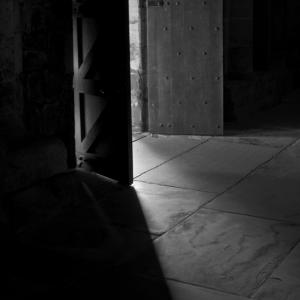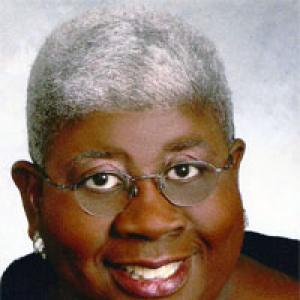Catherine Meeks was director of African American studies at Mercer University when this article appeared.
Posts By This Author
From the Archives: April 1984
Strength for the Next Step
I AM NOT really sure about what it means to love God, but I do know what it means to be loved by God; and while God’s love for me is no guarantee against struggles, despair, or suicidal thoughts, it gives me the strength to take the next step. Psalm 139 has become one of my favorite statements about God’s love for me and presence in my life.
The psalmist proclaims, “Surely the darkness will hide me and the light become night around me; even the darkness will not be dark to you, the night will shine like the day, for darkness is as light to you” (Psalm 139:11-12). I am reminded by this proclamation that God is the ultimate reconciler of the contradictions of life. For even in the darkness God stands at the center and becomes as the light.
Because I am alive today I know that God has stood at the center of my despair and darkness and that out of that presence my will to continue was born. I am aware that I must simply be present to the power and love that have kept me from suicide, and that at the very core of my deepest despair or hottest rage stands God. I will be “held fast by his right hand” because there is no place that I can go either inwardly or outwardly where God is not already present. My hope is further undergirded by the knowledge that the contradictions of life in general and my life in particular are never final.
This article originally appeared in the April 1984 issue of Sojourners. Read the full article in the archives.
At the Door of the Church
It is not very difficult to understand why there is a black church and a white church in America today, or to realize that this structure will not change in the near future. The religious atmosphere created by the coming together of blacks (who were slaves) and whites (who were masters) tended to negate any possibility of developing the true unity and oneness that scripture proclaims for the church. The agendas of the slaves were vastly different from those of the masters. Unfortunately, conflict over agendas, both stated and unstated, continues to be one of the reasons that blacks and whites do not come together to worship.
In The Middle: The Challenge of Racial Reconciliation
I suppose I could live my life saying, "I will never allow myself to try to understand white people. I will cut myself off from them. I will live my life as a black woman, and I'll just keep white people in boxes." But to do that means to keep myself cut off from a part of myself. And if white people do that about black people, I think the same is true: It keeps them cut off from a part of themselves.
For those of us who are Christians, I don't think we have any choice in the matter. I think God has made it clear that we're to be reconciled to God and each other. And if we're to be reconciled to each other, that includes everyone who happens to be in the world with us.
Reconciliation demands that you not take sides; it demands that you take a stand, I think—a stand that's maybe a merging of a lot of different pieces that represent several different kinds of philosophical stances. I think that one who chooses a road of reconciliation must be willing to look at more than one side of the coin.
Herding Butterflies
What does it take to create community? A calm and tender manner isn't a bad place to start.
Subduing Nature, and People of Color
Race, class, and the theology of domination
Racism is a significant factor in how environmental issues are dealt with. The attitude Americans have toward people of color and people in developing countries often gets mixed in with whether we think a particular environmental problem is something that even ought to be addressed. It is rooted in the attitude that certain people are not valuable.
The view in the developed world often doesn't take the affected people into consideration. It starts with the questions, What is to our benefit? and, How are we impacted by whatever is happening somewhere?—rather than the question, How are the native people being impacted?
As Americans moved through history seeking to "subdueö nature and to have "dominion" over creatures deemed "lesser than human", white people often forgot that people of color were not included in whatever it was that God was giving human beings dominion over. It was forgotten, or maybe it was never learned, that using what one needs from the environment to help sustain life is very different than striving to control and dominate the environment.
The idea of dominion and domination of people of color has become quite the norm in many instances. Westerners historically have had the idea that, as a technologically advanced place, we can use any other place on the globe for our benefit. For instance, Europeans bring their waste and dispose of it in Gambia, out in the bush—and the people who live there have no idea what is going on. If people are not seen as valuable, then we don't have to value whatever environmental problems confront them as people.
At the Door of the Church
This is a Challenge to White and Black People of Faith.
A Lesson in Rainbows
God used Ntozake Shange to help me name the pain that I felt.




